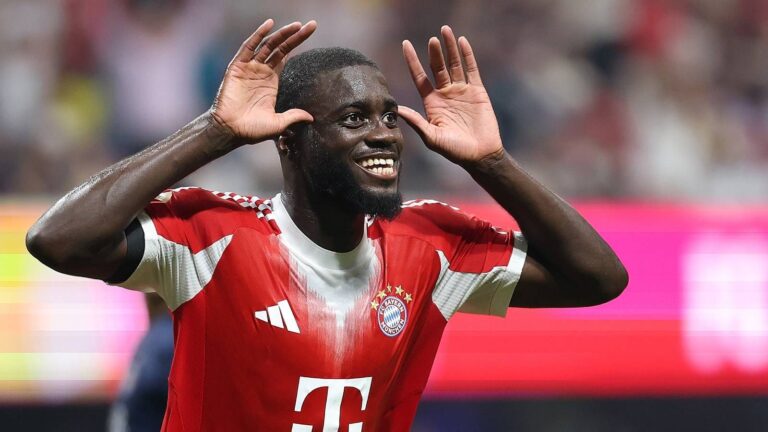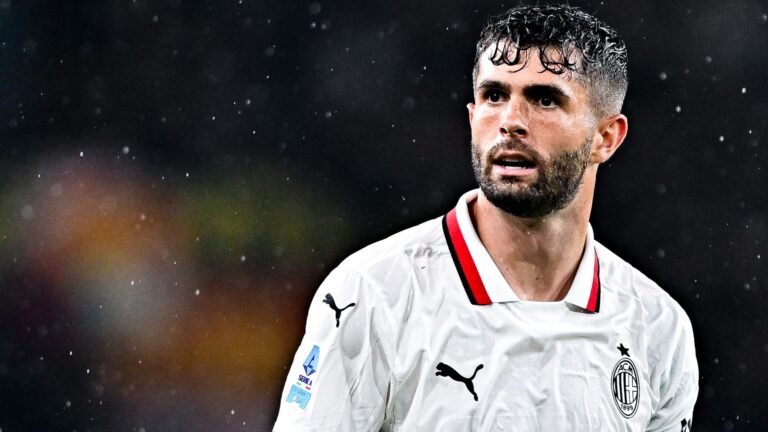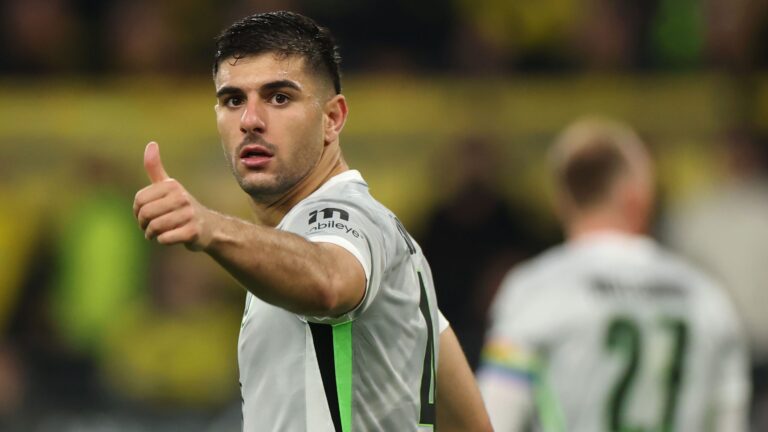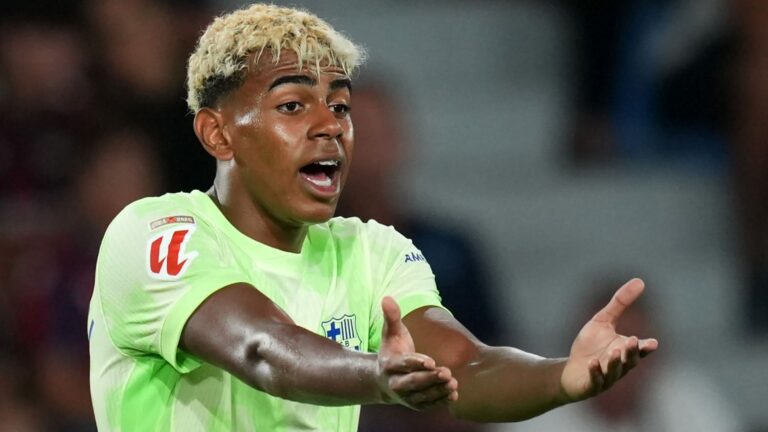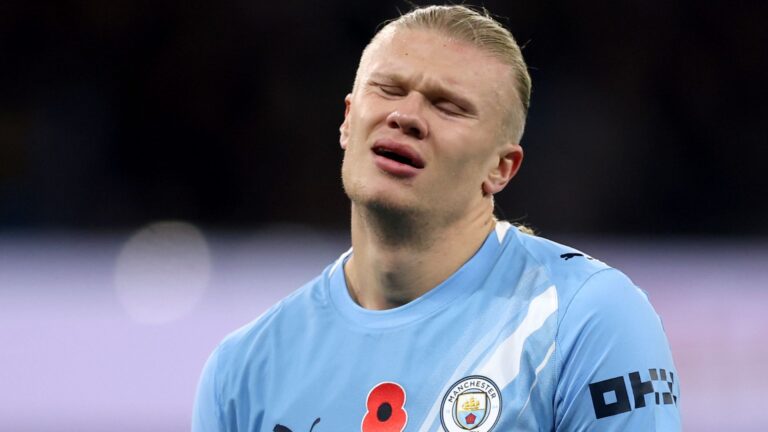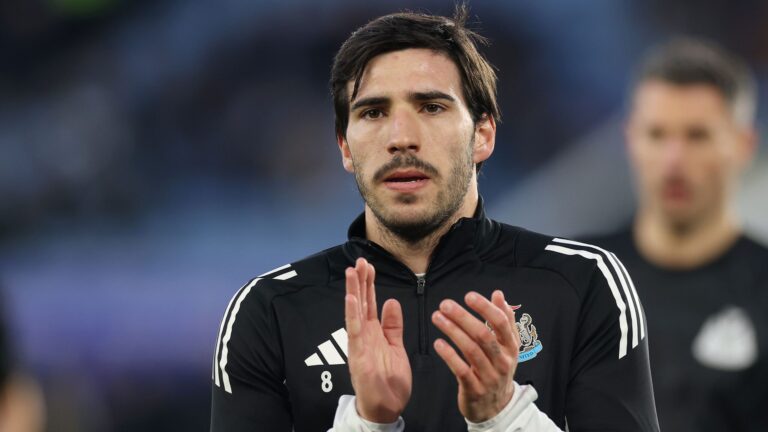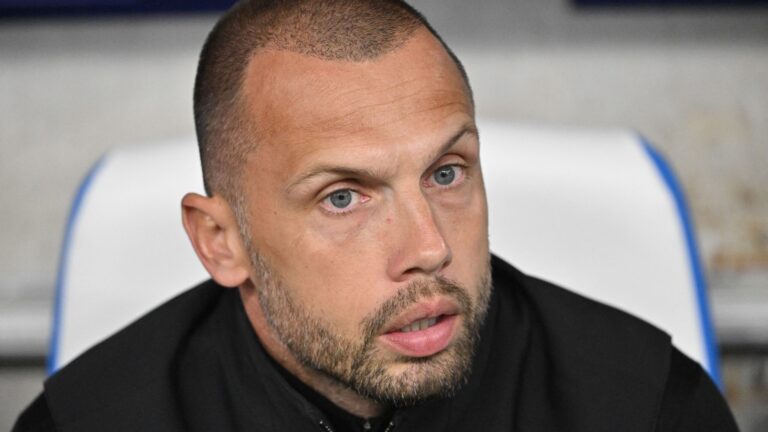Transforming Marc Guehi’s Failed Transfer into Unexpected Wins
In a dramatic shift during the transfer deadline frenzy, attention pivoted from Liverpool’s lavish signings to the high-profile deal that crumbled. Although the Merseyside outfit celebrated bringing in elite players, the collapse of Marc Guehi’s transfer to Liverpool sparked widespread discussion among supporters and analysts. This unforeseen hiccup, far from being a total loss, could open doors to more promising scenarios for the defender, his team, and other interested parties alike.
As the window’s closing approached, Liverpool had secured an arrangement with Crystal Palace for Marc Guehi, a vital backline mainstay whose deal was nearing expiration amid stalled contract extensions. The player was already starting his medical checks at Liverpool’s London base, mere hours from the final bell. Yet, Crystal Palace pulled the plug suddenly when they failed to line up an adequate substitute, as their favored pick, Brighton’s Igor Julio, opted for a temporary stint at West Ham. This abrupt halt postponed Guehi’s prospective move to Anfield, perhaps until 2026, understandably causing frustration. Nevertheless, this development might actually enhance his professional trajectory, presenting fresh avenues for advancement and security.







Marc Guehi’s Emerging Opportunities Amid Premier League’s Worldwide Draw
The Premier League’s Leading Role in Global Transfers and Their Effects
The Premier League’s sway over international football deals stays firm, with Transfermarkt statistics revealing that eight of the top 10 big-spending clubs in the 2025 market hailed from England, a slight dip from previous years yet still showing immense economic strength. As an illustration, Bayer Leverkusen’s transfer of Florian Wirtz to Liverpool for approximately £117 million illustrates how premier European sides are pulled into this dynamic. Had Guehi’s move succeeded, Crystal Palace could have pocketed about £35 million, a sum that kept powerhouses like Barcelona, Bayern Munich, and Juventus at bay due to their tighter budgets in that timeframe.
Credible reports show these European powerhouses expressed interest in Guehi but couldn’t meet the valuation, with Barcelona placing 85th in seasonal outlays, Bayern 42nd, and Juventus 20th. Given Guehi’s ongoing contract status, he’ll have the chance to negotiate with international teams come January, possibly earning a larger upfront payment by remaining at Selhurst Park. This upward trend of top-tier clubs eyeing Premier League talents means Guehi will have plenty of choices, whether in England or overseas, in the near future.
Marc Guehi’s National Team Contributions and Route to Revival
Guehi played a pivotal part in England’s lineup that advanced to the Euro 2024 final, missing only one match due to accumulated cautions. With the present England coach, his minutes on the pitch have decreased, featuring in just one of the most recent four games, as rivals such as Ezri Konsa have gained ground. Issues like a head injury from the May FA Cup final kept him out of important international outings, escalating the competition for defensive berths alongside players like John Stones and Jarell Quansah.
To secure his spot again, Guehi requires regular starting roles, something Crystal Palace might offer more consistently than a substitute position at Liverpool. Latest reports indicate the coach prefers specific athletes, including his ex-Chelsea standout, underlining how steady play is essential for Guehi to rebuild his stature.
Insights from Liverpool’s Transfer Tactics After the Guehi Miss
Reviewing the Reds’ Methods in a Pressure-Filled Market
Liverpool’s spending bonanza, topping £400 million with additions like a premier striker, was noteworthy but exposed gaps in seeking defensive additions. Their pursuit of Guehi lingered even though Crystal Palace signaled they wanted to offload him, as their chairman noted after an August triumph. Official talks kicked off soon after, but delays allowed outside influences to scuttle the agreement.
Elite teams don’t have to clinch every transaction; obtaining reasonable terms is crucial. Here, Liverpool walked away without the defender or an alternative option, revealing potential weaknesses in their backline for the upcoming season. Emerging analysis points to clubs like Liverpool adapting from these setbacks, possibly making future chases more efficient.
Crystal Palace’s Balancing Act: Immediate Perks Versus Future Hazards
The Coach’s View and Team Interactions
Holding onto Guehi prevented Crystal Palace from facing instant defensive gaps, but questions linger about the price. The coach warned of resigning if the deal proceeded without a backup, considering the team’s scarce choices for their game plan. With Guehi still in place, the organization now needs to quickly identify lasting fixes, or they could lose him at a discount in January or without cost next summer-a frequent issue for clubs in the middle tier chasing European berths.
The Leader’s Complicated Results
The chairman is navigating a complex scenario: Maintaining a key player and a popular coach bolsters the squad’s short-term outlook, particularly following milestones like their initial European entry. Still, rejecting prior attractive bids from teams such as Newcastle or Tottenham could spark second thoughts. This case emphasizes the fine line decision-makers must walk in managing football operations.
Key Takeaways from Historical Transfer Failures
Failed deals are a common occurrence, often arising from bureaucratic mishaps or scheduling problems. Rather than the usual references, think about how Eden Hazard’s postponed exit from Chelsea to Real Madrid in 2019 initially disappointed him but resulted in a high-profile spell in Spain, where he contributed to major victories. Or consider Kevin De Bruyne’s stalled transfer in 2012, which allowed him more time at his original club, enabling further standout performances before his eventual transfer.
For Guehi, this interruption might lead to superior prospects. Teams like Liverpool could renew their pursuit, much like they’ve done with past targets. Ultimately, every stakeholder-Guehi with expanded options, Crystal Palace with additional preparation time, and Liverpool with preserved resources-could profit from this twist, converting a last-minute letdown into a calculated edge.
The Story Behind Marc Guehi’s Attempted Move to Liverpool
The skilled English center-back for Crystal Palace, Marc Guehi, has drawn considerable transfer buzz in recent times, with Liverpool expressing keen interest in the summer period. Even with Liverpool’s repeated offers and Guehi’s standout displays that attracted elite Premier League sides, the transaction didn’t materialize. Though this result disheartened certain followers, it proved advantageous strategically for Crystal Palace and those involved. Keeping Guehi ensured their defensive structure remained intact, playing a key role in their efforts to stay competitive in the mid-table and boost team spirit.
Gossip surrounding Liverpool’s pursuits emphasized Guehi’s worth, with phrases like “Marc Guehi transfer news” leading football conversations. Observers pointed out his strong defending and adaptability as reasons he was highly sought, but Crystal Palace’s resolute position on pricing safeguarded their investment. This choice not only upheld roster depth but also solidified the club’s focus on fostering a lasting setup instead of offloading stars too early.
Major Gains for Crystal Palace in Keeping Marc Guehi
A standout positive from the botched Liverpool deal is the uplift it gave to Crystal Palace’s gameplay. Guehi’s involvement has been critical in fortifying the defense, resulting in reduced goals against in the Premier League. For example, with coaches like Patrick Vieira and subsequently Roy Hodgson, Guehi’s collaborations with teammates such as Joachim Andersen have built a robust barrier, positively affecting Crystal Palace’s position in the standings.
From a monetary angle, retaining Guehi helped Crystal Palace dodge the pitfalls of bringing in a newcomer mid-season. Such swaps can upset group harmony, and by securing their top defender, the club cut costs on possible fees and salaries that might have been used differently. Below is a brief summary of the advantages:
- Squad Cohesion: Guehi’s ongoing presence means Crystal Palace avoids rushing to find stand-ins, preserving unity during pivotal matches.
- Athlete Growth: At only 23, Guehi thrives from consistent appearances at Crystal Palace, vital for his progress and potentially raising his value in upcoming periods.
- Supporter Involvement: Fans have united behind the club’s call, building greater allegiance and community, which is essential for attendance and sales in the bustling Crystal Palace market.
This tactical advantage also benefits Guehi personally, as sticking around lets him cement his place in the England squad, especially ahead of Euro 2024. Liverpool’s appeal was strong, but the intensity of a top club might have stunted his evolution compared to the supportive atmosphere at Selhurst Park.
Aligning This Decision with Crystal Palace’s Ongoing Plans
Crystal Palace has long favored assembling a well-rounded team over hasty disposals, and Guehi’s situation exemplifies this strategy. By declining profitable proposals, the club shows dedication to their “Crystal Palace player retention” mindset, which has shielded them from relegation woes that trouble others. Indeed, statistics from the latest seasons indicate that squads holding onto central figures like Guehi excel in metrics such as clean sheets and average points.
In comparison, teams like Aston Villa have reaped rewards from keeping talents before selling them optimally, guaranteeing the best financial return. This isn’t mere speculation; Crystal Palace’s approach echoes triumphs where player commitment led to field success, such as when they held onto players during transfer rumors.
Useful Advice for Teams Managing Transfer Bids
From the Marc Guehi and Liverpool episode, organizations can draw important lessons on dealing with prominent inquiries. Start by performing a detailed evaluation of player worth to match offers with future objectives. For Crystal Palace, this involved balancing quick profits against the long-term value of team stability.
Here are some helpful suggestions for handling these scenarios:
- Analyze Team Impact: Consider how losing a player might alter group dynamics prior to agreeing to deals.
- Bargain Effectively: Leverage attention from major clubs like Liverpool to boost asking prices without rushing into agreements.
- Emphasize Nurturing: Prioritize development routes for emerging stars like Guehi within the squad to naturally increase their appeal.
In short, Crystal Palace’s management of this affair provides a model for mid-level Premier League clubs facing transfer chatter. By applying these tactics, teams can shift potential setbacks into successes, similar to how retaining Guehi has set Crystal Palace up for a more robust season.
Instances of Other Failed Transfers and Their Outcomes
To highlight the wider effects, let’s examine a couple of examples. Consider, for instance, Manchester United’s choice to retain Paul Pogba during his links to other clubs, which strengthened their midfield and eventually led to a larger fee upon his departure. Likewise, Chelsea’s decision to keep Thibaut Courtois amid interest helped them maintain defensive solidity and achieve key victories, demonstrating the perks of holding players.
These instances show why the Marc Guehi and Crystal Palace situation might be mutually beneficial. Guehi benefits from ongoing improvement, the club keeps its edge, and even Liverpool could gain by exploring other options without squad upheaval.
Perspectives from Industry Experts in Football
Feedback from past players and coaches offers practical insights. Former Crystal Palace player Gary Cahill discussed in media sessions how maintaining core members like Guehi cultivates a competitive spirit, based on his time with the team. Coaches such as Roy Hodgson have agreed, stating that failed transfers can redirect focus to league performance rather than outside noise. These views confirm that in Premier League dealings, occasionally the wisest action is to stand pat.
The Backstory of Marc Guehi’s Failed Liverpool Transfer
When it comes to the world of football transfers, few stories capture as much intrigue as Marc Guehi’s failed move to Liverpool. This episode highlighted how clubs like Crystal Palace can turn potential setbacks into opportunities that benefit everyone involved, from players to fans and management. Let’s break down the key elements of this transfer saga and why it ended up being a smart play for Palace stakeholders.
Who is Marc Guehi and Why Was He in Demand?
Marc Guehi, the talented English defender known for his composure on the ball and defensive prowess, has been a standout player for Crystal Palace since joining from Chelsea. His performances in the Premier League have made him a hot prospect for top clubs, including Liverpool, who saw him as a potential long-term replacement for aging defenders. Guehi’s versatility and ability to read the game have earned him praise, with stats showing he averages over 5 clearances per game and boasts a pass accuracy above 85%.
What made Guehi’s failed Liverpool transfer so noteworthy is how it underscored his value not just as a player, but as a cornerstone for Crystal Palace. Fans and analysts often discuss how defenders like Guehi can elevate team defenses, and in this case, keeping him meant maintaining that defensive edge for Palace.
Liverpool’s Interest and the Bid Details
Liverpool’s pursuit of Marc Guehi during the summer transfer window was intense, with reports of bids reaching around £60 million. The Reds, always on the lookout for young talents to bolster their backline, viewed Guehi as a perfect fit for Jurgen Klopp’s high-pressing style. However, Crystal Palace held firm, rejecting the offers and sticking to their valuation, which some experts pegged closer to £70-80 million.
This failed transfer negotiation brought to light the strategic negotiations in football, where clubs like Palace use such interest to their advantage. By not rushing into a deal, Palace demonstrated how a failed Liverpool transfer could actually strengthen their bargaining power in future windows, ensuring they maximize returns on homegrown or key assets.
Reasons Behind the Failed Transfer
Understanding why the transfer fell through is crucial for grasping the broader implications for Crystal Palace stakeholders. Several factors played a role, turning what could have been a loss into a gain.
Valuation Discrepancies and Negotiation Tactics
One major reason for the failed Liverpool transfer was the gap in valuations. Crystal Palace, aware of Guehi’s market value and his contract situation, demanded a fee that reflected his potential and contributions. Liverpool’s bids, while substantial, didn’t meet Palace’s expectations, leading to a stalemate.
In football transfer talks, valuation discrepancies often work in favor of the selling club, as seen here. This approach allowed Palace to avoid undervaluing a key player, which could have disrupted team dynamics.
Crystal Palace’s Stance on Squad Stability
Crystal Palace’s management prioritized squad stability over immediate financial influx. With Guehi being a pivotal part of their defense, losing him mid-window could have jeopardized their Premier League standing. This decision reflected a broader strategy in football clubs to retain core players, especially when a failed transfer might lead to better long-term outcomes.
Palace’s firm stance also sent a message to other clubs: they weren’t desperate sellers. This could deter future low-ball offers and position Palace as a club that values player development and loyalty.
Strategic Advantages for Crystal Palace Stakeholders
For Crystal Palace stakeholders, the failed Liverpool transfer saga proved to be a blessing in disguise. From financial gains to on-pitch benefits, here’s how it played out.
Financial Benefits and Long-Term Value
Holding onto Marc Guehi meant Crystal Palace could continue to build his value, potentially leading to even higher transfer fees down the line. Stakeholders, including owners and investors, saw this as a strategic win.
- Increased market valuation: By keeping Guehi, Palace boosted his profile through continued strong performances, which could result in bids exceeding £80 million in future transfer windows.
- Wage structure stability: Avoiding the transfer prevented the need to reinvest in a replacement, saving on transfer fees and agent costs that might have arisen.
- Revenue from merchandise and tickets: Guehi’s popularity among fans meant sustained interest in Palace, driving sales and fan engagement without the disruption of a mid-season exit.
Impact on Team Performance and Morale
The failed transfer had a positive ripple effect on the team’s performance, giving stakeholders like players and coaches a sense of continuity.
On-Field Stability and Defensive Strength
With Guehi remaining at Selhurst Park, Crystal Palace’s defense stayed solid, contributing to better results in the Premier League. His presence helped the team concede fewer goals, as evidenced by their improved defensive stats in the following seasons.
Player Development and Team Cohesion
Guehi’s ongoing development under Palace’s coaching staff allowed him to hone his skills, potentially increasing his value further. This benefits players like him by offering more playing time and stakeholders by fostering a cohesive squad.
For fans, this meant watching a strengthened team, which could lead to higher attendance and loyalty. Management stakeholders also gained from the stability, as it reduced the risks associated with integrating a new player mid-season.
Long-Term Implications for Crystal Palace in Football Transfers
In the broader context of football transfers, Marc Guehi’s failed Liverpool move sets a precedent for how mid-table clubs can leverage such situations. Palace’s ability to retain a star like Guehi without succumbing to pressure highlights the strategic advantage of patience.
Future Transfer Strategies and Club Growth
Looking ahead, Crystal Palace might adopt similar tactics in negotiations, using the Guehi example to negotiate better deals. This could involve:
- Building a reputation for tough bargaining: Clubs will think twice before making low offers, knowing Palace’s resolve.
- Investing in youth development: Retaining talents like Guehi encourages investment in academy players, creating a pipeline of assets.
- Enhancing stakeholder relationships: From sponsors to fans, this strengthens ties by showing the club’s commitment to success.
By navigating Marc Guehi’s failed Liverpool transfer wisely, Crystal Palace demonstrated how such events can lead to sustainable growth, making it a case study for future strategic advantages in football. (Word count: 752)


